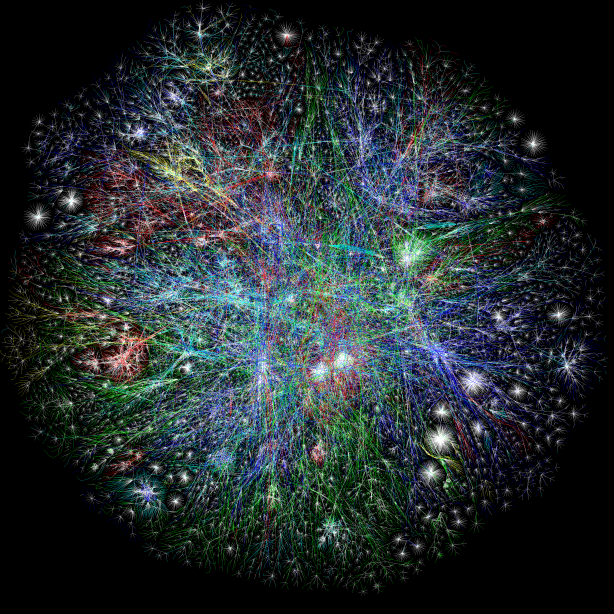A week ago I receive an invite from a friend to meet him and some others for dinner that evening. I promptly tell him sure and go about my business until it was time to get ready. As I’m stepping out of the shower, I reach for my phone realizing I don’t know where the restaurant is and I text him back. “Hey, where is X?” His reply had Earth shaking implications.
He sent me a link from lmgtfy.com. That is, he sent me a snarky, albeit well intentioned rebuke about my very unself-reliant approach to not knowing something. Why should I waste his time asking a question when I could’ve just googled it? So my fiancé, he, and I got a good laugh out of it and life went on.
A few days later, someone posted a question on Facebook about what word processor to use on a Mac. I felt compelled; nay, obligated to respond to her question with the same response my friend sent to me. The pertinent jeer of lmgtfy.com proved useful again and suddenly I’m struck by the implications of my own actions.
Are questions worth asking any more? I asked Google.
Apparently not every question comes up with a worthwhile response. Why then would we still feel bothered by having to respond to a question when someone could just look it up and discover the answer for themselves? Apparently it depends on the question. So I asked a few more.
In Isaac Asimov’s short story, The Last Question, a system that can be said to be the internet is essentially used to answer all types of useful queries. In the story, one person in every generation or so asks a question with some fundamentality to it. Anyone familiar with the 2nd Law of Thermodynamics knows about the question posed and it’s weightiness. “Can entropy be reversed?” If you don’t know about the 2nd Law of Thermodynamics or what entropy means, then I have a lovely link for you right HERE!. There is a critical mass of information wherein even the incalculable can become calculable. Even when I asked my first question above, Google attempted to give me its “sufficient data for a meaningful response.” So while we may not be ultimately satisfied with the answers we receive from the knowledge nebula to the ultimate questions (think: 42), we are still given 800,000 potential loci for something more subjectively meaningful.
So what? What does this mean for us? Even as I’m writing this, an article from one of my favorite editorial sights is publishing an article on roughly the same thing.
A week prior to the dinner in question, I went out with the same friend where we had a discussion about moral obligations with regards to knowledge. My position was this: With information being increasingly more available, are people now morally obligated to know certain things about the world? I mentioned that whether we want to admit it or not, we already have a standard for this. Prior to the internet, saying “I don’t know” to some questions would warrant some contempt. If you were to not have a position or even a standard wealth of knowledge on slavery in the 1860s, you may be looked down upon. Now that we have Google, is it okay for people to not know about certain world events or discoveries? My friend was more sympathetic to the ignorant amongst us. He thought there were plenty of cultural and environmental reasons why people wouldn’t know something or wouldn’t feel compelled to know something. Should we fault the rich for not knowing the needs of the poor? Should we fault the impoverished for not knowing about macroeconomic trends and issues? Do high school students in Alaska need to know about heat waves in Texas? Should Americans know about what’s going on in Syria? It all seems to depend on what you’re asking and to whom. However, not having an answer is becoming less acceptable if you have access to the same information. The internet to one degree or another, I’m arguing is a great equalizer. If that is true, then we can say that with minimal effort, and with great expectations from others, individuals should meet a higher standard of knowledge or at least utilize the capability to attain that knowledge on average. My fiancé during this discussion did not share my friend’s sympathies. She is much more inclined to impute the ultimate responsibility on the ignorant. They are willfully ignorant by their knowledge-seeking malaise. Additionally, she thinks, they should feel ultimately responsible for their own set of knowledge, and that any individual doesn’t owe society at large anything for which to feel obligated. To her, the obligation comes from within. To me, the obligation simply exists as sort of brute fact by which we are helpless to comply, though those of us that do so willingly and productively are good people. My friend I think is wary of the term “obligation.”
So the question remains fairly open. Are questions obsolete? Well, maybe not. Many of them are certainly becoming a faux pas. It seems Google has an answer for everything except in philosophy. Almost by definition, philosophy tends to tackle issue for which the ken of humanity has not yet breached that critical mass I mentioned earlier. Google cannot answer your ultimate questions. Instead it’ll spit back references and other attempts to your questions in ways that you may or may not find useful. If you ask google about loneliness, you might derive some meaning from its responses. If you seek to understand a language in the the robust, idiomatic and nuanced parlance of its domain then you might find plane tickets or audio tapes or movies. However, Google doesn’t have the moral obligation to provide you with the answers you seek. Instead it demands that you recognize the relentless obligation you have to constantly ask the right questions.

